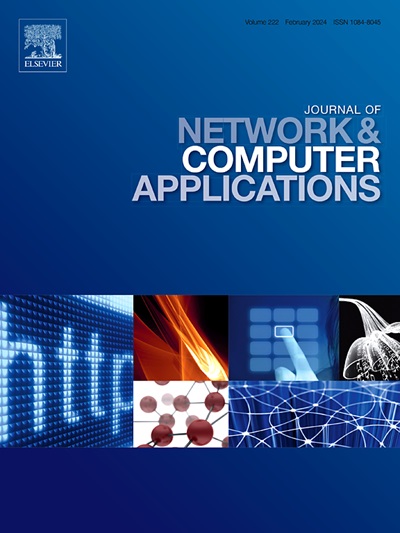RCA-SI: A Rapid Consensus Algorithm for Swarm Intelligence in unstable network environments
IF 8
2区 计算机科学
Q1 COMPUTER SCIENCE, HARDWARE & ARCHITECTURE
引用次数: 0
Abstract
Swarm intelligence systems are a class of distributed systems in which device nodes utilize distributed algorithms to achieve data consensus and execute complex collective tasks. These systems operate in highly dynamic environments, where unstable network conditions, often induced by environmental complexities, can significantly affect the progress and efficiency of data consensus. To tackle this challenge, we propose RCA-SI (Raft-based Consensus Algorithm for Swarm Intelligence), a novel method specifically designed for the task scenarios of swarm intelligence. RCA-SI is designed with a node management protocol and a cluster operation protocol to address the challenge of rapid data consensus in unstable network environments. The correctness of RCA-SI was formally verified using TLA+. Furthermore, we evaluated the algorithm’s functionality and performance through simulations of swarm intelligence systems under unstable network environments caused by increased latency, network jitter, and data packet loss. Experimental results demonstrate that RCA-SI outperforms Raft, Paxos, and Multi-Paxos in terms of throughput under unstable network conditions, particularly in high-latency and high-packet-loss scenarios. The algorithm’s correctness is formally verified using TLA+, and its efficiency is confirmed through simulations, highlighting its suitability for swarm intelligence systems.
RCA-SI:一种不稳定网络环境下群体智能的快速共识算法
群智能系统是一类分布式系统,其中设备节点利用分布式算法实现数据共识并执行复杂的集体任务。这些系统在高度动态的环境中运行,其中不稳定的网络条件(通常由环境复杂性引起)会显著影响数据共识的进展和效率。为了解决这一挑战,我们提出了RCA-SI(基于raft的群体智能共识算法),这是一种专门为群体智能任务场景设计的新方法。RCA-SI设计了节点管理协议和集群操作协议,以解决不稳定网络环境下快速达成数据共识的挑战。使用TLA+正式验证了RCA-SI的正确性。此外,我们通过模拟不稳定网络环境下的群体智能系统来评估算法的功能和性能,这些不稳定网络环境由增加的延迟、网络抖动和数据包丢失引起。实验结果表明,在不稳定的网络条件下,特别是在高延迟和高丢包场景下,RCA-SI在吞吐量方面优于Raft、Paxos和Multi-Paxos。通过TLA+正式验证了算法的正确性,并通过仿真验证了算法的有效性,突出了算法在群体智能系统中的适用性。
本文章由计算机程序翻译,如有差异,请以英文原文为准。
求助全文
约1分钟内获得全文
求助全文
来源期刊

Journal of Network and Computer Applications
工程技术-计算机:跨学科应用
CiteScore
21.50
自引率
3.40%
发文量
142
审稿时长
37 days
期刊介绍:
The Journal of Network and Computer Applications welcomes research contributions, surveys, and notes in all areas relating to computer networks and applications thereof. Sample topics include new design techniques, interesting or novel applications, components or standards; computer networks with tools such as WWW; emerging standards for internet protocols; Wireless networks; Mobile Computing; emerging computing models such as cloud computing, grid computing; applications of networked systems for remote collaboration and telemedicine, etc. The journal is abstracted and indexed in Scopus, Engineering Index, Web of Science, Science Citation Index Expanded and INSPEC.
 求助内容:
求助内容: 应助结果提醒方式:
应助结果提醒方式:


